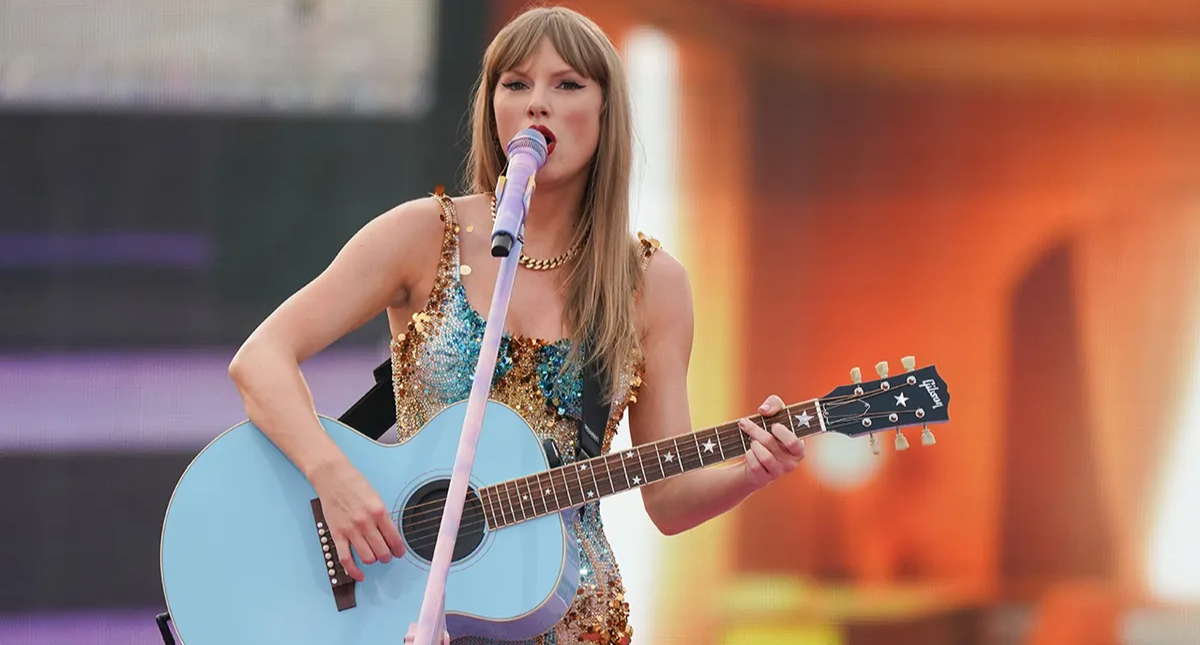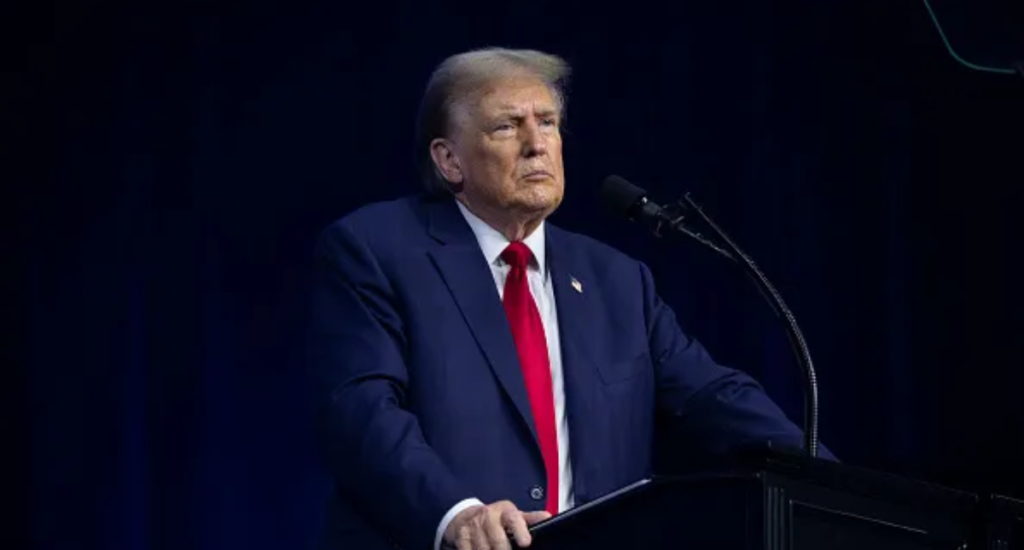
The world of social media is no stranger to controversy, especially when it involves prominent figures like former President Donald Trump and pop superstar Taylor Swift. Recently, Trump sparked an online firestorm after posting images that seemed to show Taylor Swift and her fans, affectionately known as “Swifties,” endorsing him.
These images, some of which were generated using artificial intelligence (AI), have led to a significant media outcry. The controversy highlights the increasing use of AI in creating and spreading content that can blur the lines between reality and fiction, raising questions about the implications for political discourse and public perception.
Trump’s Posting of AI Images Triggers Media Outcry
The main incident that led to this media frenzy revolves around Trump’s decision to post a series of images on his social media platform, Truth Social. These images, which were partially AI-generated, depicted Taylor Swift and her fans showing apparent support for Trump.
One of the most talked-about images was a doctored version of the classic Uncle Sam recruiting poster, featuring Taylor Swift dressed in patriotic colors with a caption that read, “Taylor Swift Wants You To Vote For Donald Trump.” Trump’s caption over the collage was simple: “I accept!”
This post quickly triggered a wave of media reactions, with many outlets accusing Trump of misleading the public by suggesting that Taylor Swift and her fanbase, typically known for their liberal leanings, were in support of him.
Some of the AI-generated images also showed fans wearing “Swifties for Trump” t-shirts, further fueling the controversy. This action has led to widespread criticism, with various media outlets calling out the misleading nature of the post and the potential dangers of AI-generated content in political contexts.
Media Response and Public Reaction
The media was quick to respond to Trump’s posts, with headlines across major outlets expressing outrage and concern. NBC News highlighted that the “Swifties for Trump” movement that Trump’s posts seemed to promote had little basis in reality.
Similarly, The Daily Beast referred to the incident as part of a “Sunday meltdown,” while Teen Vogue and The New Republic condemned the use of AI to fabricate endorsements. Rolling Stone joined in, criticizing the misleading nature of the images, labeling them as “bogus.”
This media uproar reflects a broader concern about the use of AI in creating deceptive content. In a world where fake news and misinformation are already significant issues, the introduction of AI-generated images adds another layer of complexity.
The ability to create highly realistic yet entirely fabricated content raises ethical questions about how such technology should be regulated, especially when it involves influential public figures and sensitive political topics.

Taylor Swift’s Political Stance and the Swifties’ Response
Taylor Swift has historically been politically active, particularly in recent years. Although she has not yet endorsed a candidate for the 2024 presidential election, it is widely assumed that she would not support Trump.
In the past, Swift has endorsed Democratic candidates and has been vocal about her opposition to Trump, particularly during the 2020 election. Her liberal stance is well-documented, and she has consistently advocated for LGBTQ rights and spoken out against policies she views as harmful to these communities.
The Swifties, her dedicated fanbase, were quick to distance themselves from the AI-generated images. Groups like “Swifties For Kamala,” which supports Vice President Kamala Harris, made it clear that they do not need AI to express their political preferences.
Irene Kim, cofounder of Swifties4Harris, emphasized that the group’s support for Kamala Harris is genuine and not artificially generated, subtly criticizing the nature of Trump’s AI-created content.
The Implications of AI in Political Discourse
The controversy surrounding Trump’s AI-generated images of Taylor Swift and her fans brings to light the broader implications of AI in political discourse. As AI technology becomes more advanced and accessible, the potential for its misuse in spreading misinformation increases.
This incident serves as a cautionary tale about the power of AI to create realistic yet entirely false narratives, which can easily mislead the public if not carefully scrutinized.
Moreover, the use of AI-generated content in politics raises ethical questions about the line between free speech and manipulating public opinion.
While Trump’s posts were likely intended to be provocative, they also demonstrate how AI can be used to blur the lines between reality and fiction, potentially influencing political opinions and voter behavior in ways that are not entirely transparent.
Related:
- Top 15 Best Movies to Watch With Friends
- Rachel Fuda of RHONJ Is Pregnant With Her Fourth Child
- 15-most-awkward-moments-in-american-idol-history
Conclusion
Trump’s posting of AI-generated images of Taylor Swift and her fans has sparked a significant media outcry, highlighting the growing concerns about the use of AI in political discourse.
The incident underscores the importance of critical thinking and media literacy in the digital age and the need for ethical guidelines surrounding the use of AI in content creation.
As AI technology continues to evolve, its impact on politics and public perception will likely become an increasingly important issue, making it crucial for both creators and consumers of content to remain vigilant and informed.
